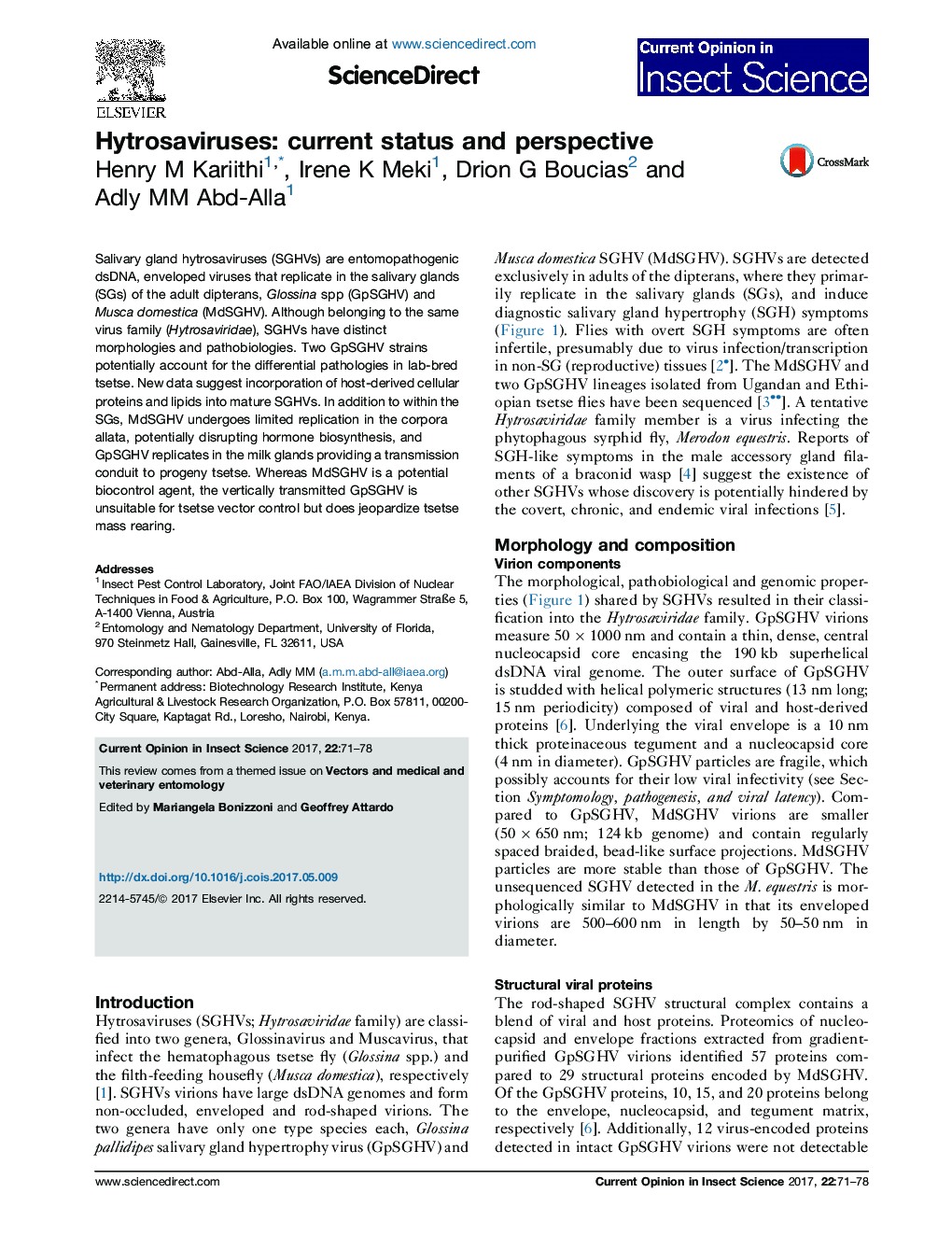| Article ID | Journal | Published Year | Pages | File Type |
|---|---|---|---|---|
| 5761101 | Current Opinion in Insect Science | 2017 | 8 Pages |
Abstract
Salivary gland hytrosaviruses (SGHVs) are entomopathogenic dsDNA, enveloped viruses that replicate in the salivary glands (SGs) of the adult dipterans, Glossina spp (GpSGHV) and Musca domestica (MdSGHV). Although belonging to the same virus family (Hytrosaviridae), SGHVs have distinct morphologies and pathobiologies. Two GpSGHV strains potentially account for the differential pathologies in lab-bred tsetse. New data suggest incorporation of host-derived cellular proteins and lipids into mature SGHVs. In addition to within the SGs, MdSGHV undergoes limited replication in the corpora allata, potentially disrupting hormone biosynthesis, and GpSGHV replicates in the milk glands providing a transmission conduit to progeny tsetse. Whereas MdSGHV is a potential biocontrol agent, the vertically transmitted GpSGHV is unsuitable for tsetse vector control but does jeopardize tsetse mass rearing.
Related Topics
Life Sciences
Agricultural and Biological Sciences
Agronomy and Crop Science
Authors
Henry M Kariithi, Irene K Meki, Drion G Boucias, Adly MM Abd-Alla,
